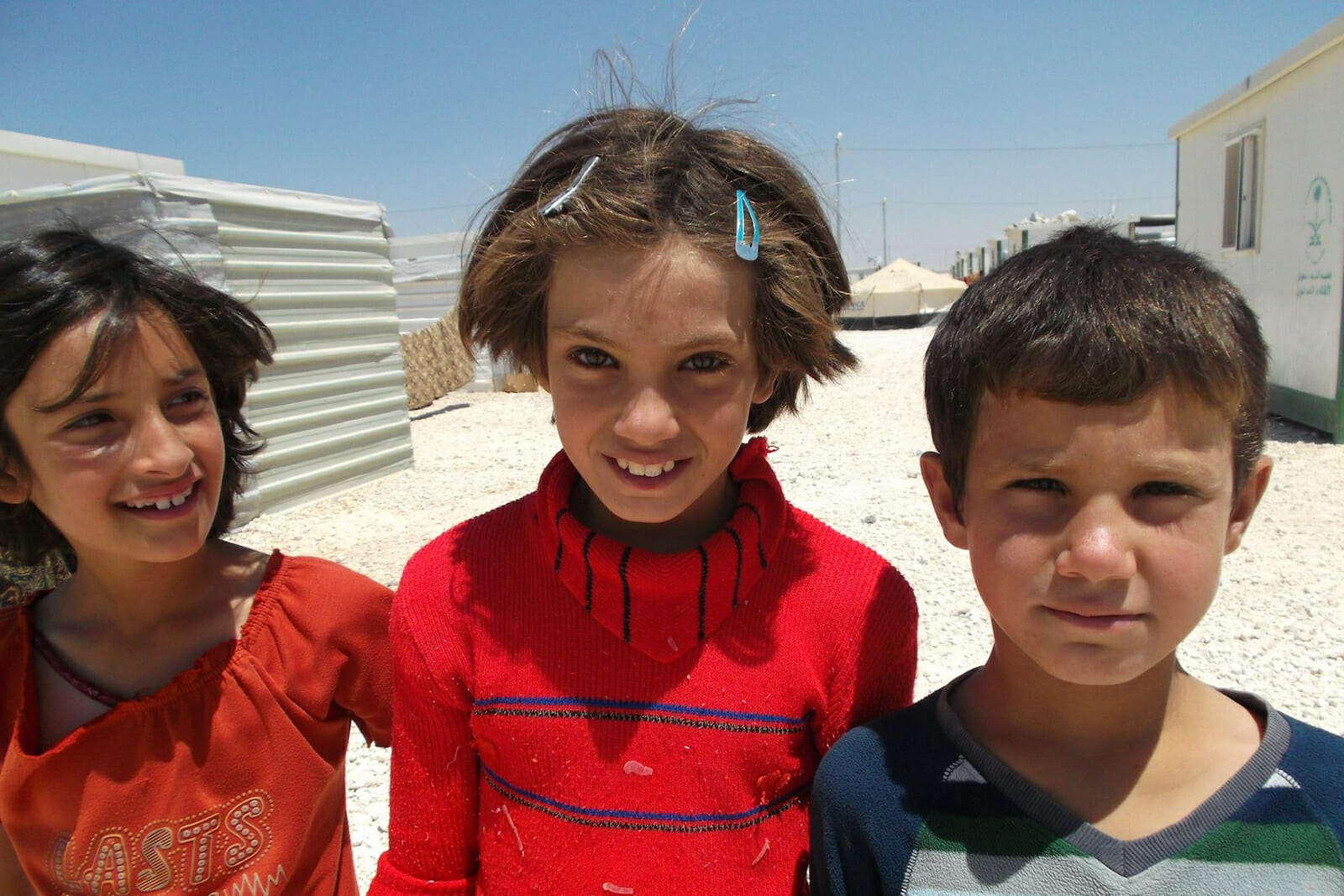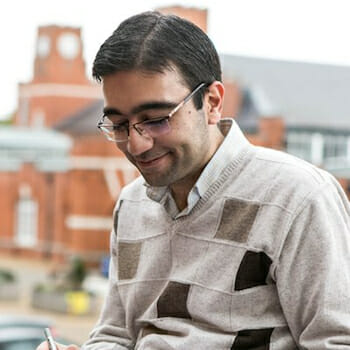
Health
Overcoming the Challenges of Working for Children with Autism: Q&A with Melissa Diamond
Working with children with autism is a challenge that few people embrace pro bono. Autism is a developmental disorder marked by difficulties with social interaction and communication, and by restricted and repetitive behavior. Stereotyped behavior, compulsive behavior, ritualistic behavior, restricted interests and self-injury, problems in social development and communication are the major characteristics of children with autism, and absent support, these challenges can present long-term challenges for individuals.
Melissa Diamond is an American social entrepreneur, community worker and writer who has founded and is the executive director of the organisation A Global Voice for Autism.
She was one of the speakers of AMENDS (American Middle Eastern Network for Dialogue at Stanford) 2016 and has dedicated herself to working with communities in which children with autism are stigmatized, marginalized and don’t receive support.
Melissa is the recipient of a Rotary Peace Fellowship and has completed a master’s degree in Conflict, Security and Development at the University of Bradford in England. She served on the Board of Directors for Refugees Welcome and continues advocating for the rights of children with autism while on her international trips and speaking tours.
In an interview Melissa Diamond talked about her organisation, the difficulties ahead of community workers and activists working with communities and children with autism and the ways those who are interested in collaborating with this organisation can contribute. She says that bringing their work to the attention of those who should know about it and bring investment is difficult, but there are reasons for hope and optimism.
Melissa finds motivation even when it’s rarely available for her and people like her: “For me, my greatest motivator in this work is seeing the difference that our programs make in the lives of the families and teachers we serve and having the opportunity to connect with people in communities around the world.”
The following is the text of my interview with Melissa Diamond, in which we discussed the challenges of supporting children with autism in conflict-affected communities, communities in which there are many children suffering and how political and social developments worldwide affect their advocacy work.
Please tell us about your organisation A Global Voice for Autism and its work. What was the motivation behind founding this organisation and how difficult is it to work with young people who are affected by disabilities, migration and trauma?
A Global Voice for Autism equips conflict-affected communities with the skills to support the development and success of children with autism and trauma-affected children in their classrooms, homes and communities. I was inspired to start the organization in 2012 after meeting a family that hid their daughter with autism in their home due to the autism stigma and lack of services in their community. I have a loved one with autism and it occurred to me that, had she simply been born somewhere else, she too might have spent her life locked in a home rather than going to school, spending time with friends and participating in her community.
The intersection of disability, conflict and trauma presents unique challenges to efforts to support people with autism and their families. While there are many organizations that address one or two of these areas, there are few organizations that are looking at the intersection of all three.
The families we support aren’t just seeking solutions for autism. Many of our families experience food insecurity and unstable and inconsistent housing arrangements among other challenges that can be byproducts of conflict and migration. Trauma also affects the lives of many of the teachers, parents, siblings and children we support. Sometimes our families are dealing with post-traumatic stress from their experiences with war. Other times, this trauma is ongoing through instances of harassment in their new communities, threats and domestic violence. Because of this, all of our programming is culturally-specific, trauma-informed and designed with people who have experienced conflict in mind.
We also work closely with partner organizations in the communities we serve and are working to build a robust referral network so that program participants can address their complex needs and can create healthy home and classroom environments for children.
I know that your educational background involves a lot of research on conflict regions and people affected by war, mayhem and sociopolitical divisions. You recently finished a master’s in Conflict, Security and Development. Does delving into the issues that as an American citizen, you might never experience, and the close engagement with children who are detached from their families or families which are torn apart, personally and emotionally affect you?
Yes, all the time. I am someone who feels deeply connected to the people around me and I constantly walk a careful line between remaining an empathetic supporter and getting wrapped up in the stories of the people in the communities where I work, who become peers, friends and partners in the quest to promote acceptance in their communities.
However, although this can be challenging at times, I feel that it is important to feel and process those emotions. In humanitarian work “emotional numbness” can be common for those who are confronted with what are, at times, horrific realities. This can dangerously interfere with humanitarian workers’ abilities to remain empathetic and to act in the best interests of the people they serve. Because of this, I make an effort to carve out spaces to process these emotions through writing and art. These emotions can often be painful and challenging, but I also believe that they are very important.
What are the main obstacles that might prevent you, an ardent community worker and advocate, from successfully realizing your goals? Is it obdurate and uncompromising leaders? Outdated funding paradigms?
Conflict continues to present a barrier as we work to realize an inclusive world for people with autism and trauma-related behavioral challenges. Although we are an organization that works in conflict-affected communities, we manage a constant balancing act between preserving the safety of our staff and teams and targeting the communities that need our services most. At times, this balance can prevent us from reaching the individuals who need our services. We have also confronted instances where political tensions have prevented us from working in communities that have asked for our support. These political issues are some of the most frustrating barriers we face as the people who suffer from these political issues, such as our teachers and families – are those who lack influence and voices in politics.
Funding is also a challenge. Many funders see our services as too “niche” in humanitarian settings or see autism support as a secondary need. However, for the families and children we serve, addressing challenges related to autism is certainly a primary need and the degree to which people with special needs are included and supported, or excluded and marginalized, in conflict-affected communities has profound effects on communities’ attitudes and approaches to every aspect of life. Inclusion is relevant to everyone.
Do less armed conflicts and tensions in the Middle East, Africa and Latin America mean less trauma, safer households and improved education for children?
Yes. Conflict can drastically affect children’s development. It can impact behavior, trust and emotional regulation among other things. It also affects family dynamics. When high levels of parental stress and trauma are present it significantly affects children. Reducing conflict and tensions in any region, country or community from the United States to Syria will certainly have positive effects on the lives of children.
Please tell us more about your work in northern Jordan, where you’re specifically trying to empower the families of children with autism to be able to go to school. How has the response from the public been so far? Do you think the communities will come to accept that autism is not a stigma and, with support, children with autism can learn and contribute to their communities?
We were recently approached by a group of parents and teachers from a community in northern Jordan and were asked to support their community. The community is a low-income community that is host to many Syrian refugees. Because of economic and geographic reasons, autism support services are unavailable to most families living in this community. At the same time, misconceptions about autism and a lack of teacher training in practices for supporting children with autism prevent children with autism in the community from attending school.
The community asked us to come and provide training to their teachers and families and to facilitate community support spaces for teachers, parents and siblings. We are preparing to launch a three-month training program in this community, in collaboration with local partners. The program will equip families and teachers with the intellectual and emotional skills to support children with autism and learning differences. This program will be a launching point for future work to build the capacity of caregivers and teachers in Jordan and we are very excited to work with this community because of the great initiative that is already being taken by community members as we work to launch this program in the community.
Sometimes, workers in charities, advocacy organizations and humanitarian initiatives like A Global Voice for Autism feel that their efforts have not been sufficiently recognized, which is a concern as it will discourage them from working with passion and dynamism. Have you or your many colleagues ever experienced this disappointment?
For me, my greatest motivator in this work is seeing the difference that our programs make in the lives of the families and teachers we serve and having the opportunity to connect with people in communities around the world.
Still, it can be discouraging to our team at times when the need for our programs is not recognised by funders, as this affects the people we serve and our ability to carry out this work. This work is unbelievably rewarding, but can also be logistically, intellectually and emotionally challenging and I think that the recognition of these challenges, and of the efforts people put in to overcome them, is crucial in any profession, and even more so when the challenges of humanitarian work are present.
How may those who want to cooperate with A Global Voice for Autism to join you or contribute to your humanitarian efforts? In what forms is external collaboration possible and are you open to new possibilities, including launching programs in countries you haven’t previously worked in?
We are always looking for collaborators and supporters. Here are a few ways you can get involved.
Donate. Our work relies on grants and donations so that we can support people with very limited resources. Your contributions make our programs possible and can be made today on our YouCaring page.
Introduce us to a funder. If you know an organization or funder who would be interested in our work, please introduce us by email.
Volunteer. If you are an autism professional or translator, follow us on Facebook or send an email to find out about opportunities to contribute your skills to our mission and work.
Invite us. Do you know a community that needs our support? Introduce us to community stakeholders and help bring our work to life in conflict-affected communities around the world. We’re always open to new ideas and new communities.

